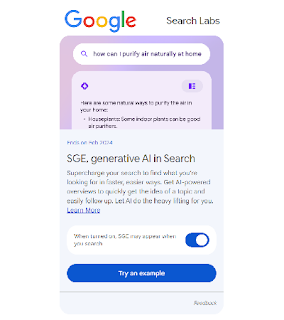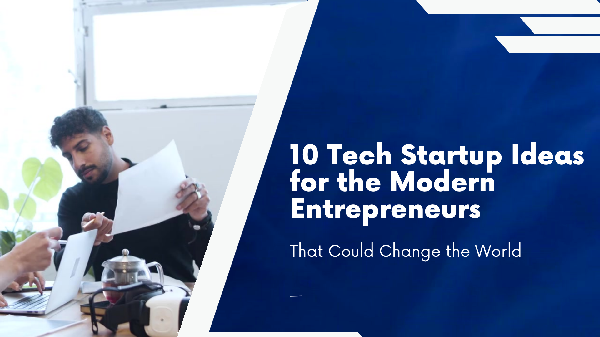How AI Can Revolutionize Your Startup's Marketing
Discover how AI can help you take your startup's marketing to the next level. Learn about the benefits of AI and how to implement it in your marketing strategy.
For startups, standing
out in a crowded market can prove to be quite a challenge. Traditional
marketing techniques such as advertising and PR can be costly and
time-consuming, and it can be challenging to measure their effectiveness.
However, with the rise of
artificial intelligence (AI), startups have an unprecedented opportunity to
leverage data and automation to transform their marketing strategies.
In this article, we will
explore how AI can revolutionize your startup's marketing.
1. Personalized Marketing
One of the most
significant benefits of AI in marketing is the ability to personalize content
and messages to specific individuals.
AI algorithms can analyze
customer data, including browsing and purchase history, social media activity,
and demographics, to create personalized experiences for each user.
This can include
personalized product recommendations, targeted ads, and personalized emails
that are tailored to the user's interests and behavior.
For example, skincare startup Proven uses AI to personalize
product recommendations for each customer based on their skin type, concerns,
and preferences. The company collects data from a user's skincare quiz and
social media activity to create a custom skincare routine and recommend
products that are most likely to work for them.
2. Predictive Analytics
AI can help startups
predict customer behavior and anticipate market trends.
By analyzing vast amounts
of data, AI algorithms can identify patterns and trends that humans might miss.
With the help of AI,
startups can make better-informed decisions when it comes to their marketing
strategies, product development, and pricing.
For example, the fitness app Freeletics uses AI to analyze user data
to predict which users are likely to cancel their subscriptions. The app then
offers targeted promotions to these users to reduce churn and improve
retention.
3. Chatbots
Chatbots are AI-powered
virtual assistants that can interact with customers and provide support 24/7.
Chatbots can answer
customer inquiries, resolve complaints, and even help customers make purchases.
This can help startups
save time and money on customer support and provide a seamless customer
experience.
For example, fashion startup H&M uses chatbots to help
customers find products and answer frequently asked questions. The chatbot can
provide recommendations based on the user's preferences and even help the user
complete their purchase.
4. Voice Search Optimization
With the increasing
popularity of smart speakers and virtual assistants such as Amazon's Alexa and
Google Assistant, voice search optimization is becoming an essential part of
marketing.
AI-powered voice
assistants can provide personalized recommendations and make purchasing
decisions for users. Startups need to optimize their content for voice search
to stay competitive.
For example, meal delivery startup Blue Apron optimized its
content for voice search by creating recipes that can be easily read aloud and
providing step-by-step instructions that can be followed without a screen.
5. Content Creation
AI can help startups create
high-quality content quickly and efficiently.
AI-powered tools such as ChatGPT,
Wordsmith, and Articoolo can generate articles, blog posts, and social media
content based on keywords and topics.
This can save startups
time and resources on content creation and help them scale their content
marketing efforts.
For example, The Washington Post uses an AI-powered tool called
Heliograf to write articles on high school sports, which can be challenging to
cover due to the sheer volume of games and events. The tool can write articles
based on game data and information submitted by coaches and parents.
Conclusion
AI is transforming the
way startups approach marketing.
By leveraging AI-powered
tools and algorithms, startups can create personalized experiences for customers,
predict customer behavior and market trends, provide 24/7 customer support,
optimize their content for voice search, and create high-quality content
quickly and efficiently.
As AI technology
continues to evolve, startups will have even more opportunities to transform
their marketing strategies and stand out in a crowded market.




Comments
Post a Comment